Termokiss: Fighting Old Policies with New Practices in Pristina
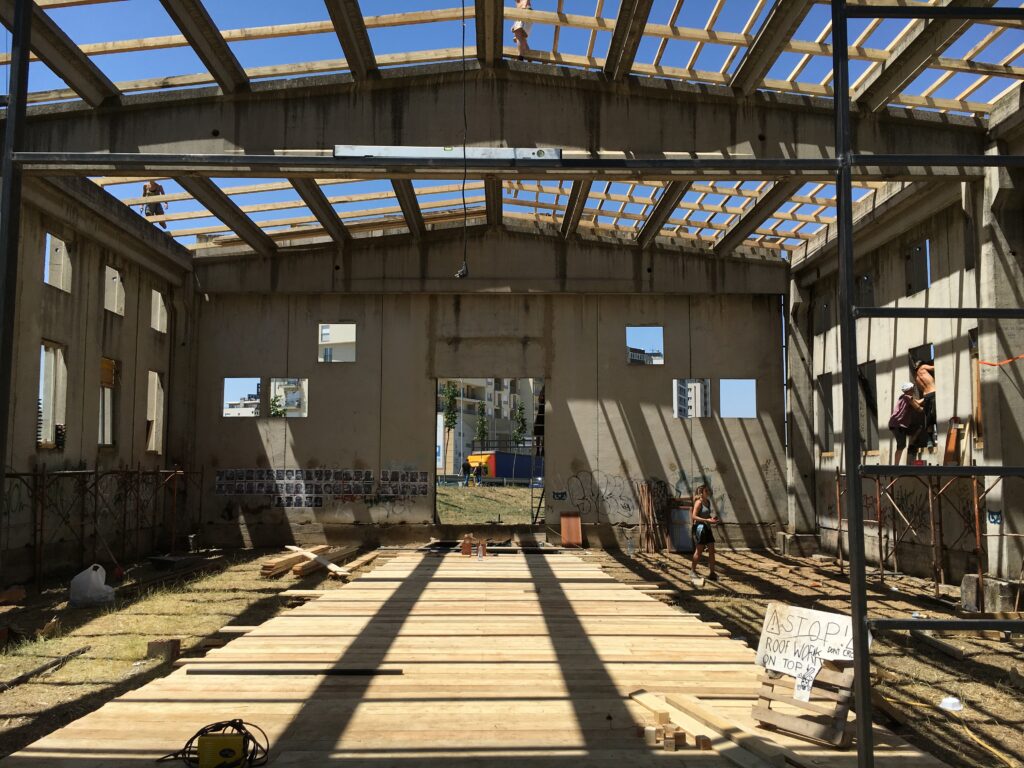
Termokiss is a community-run centre in Kosovo’s capital city, Pristina, with the mission of urban and civil exchange, reflection and changemaking. Based on a once derelict site, it has become a vibrant social and cultural hub, a safe space where people of all backgrounds and ages can meet, work and learn together, and an ever-evolving model for grassroots social design – all thanks to a collective of creative young people.

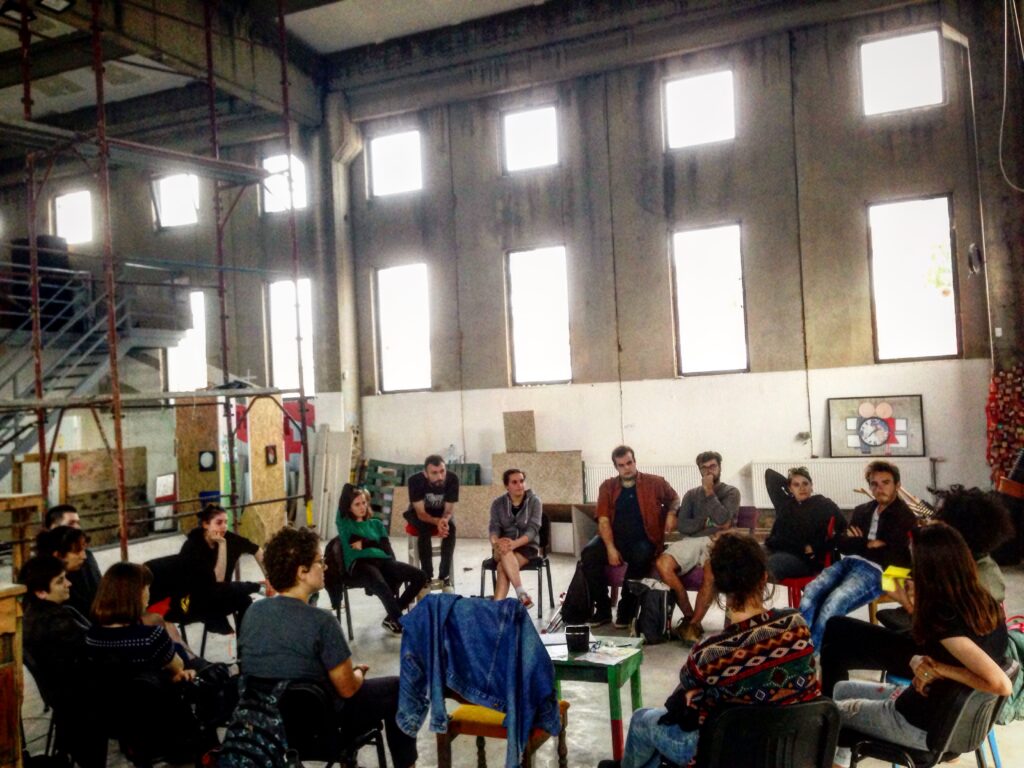
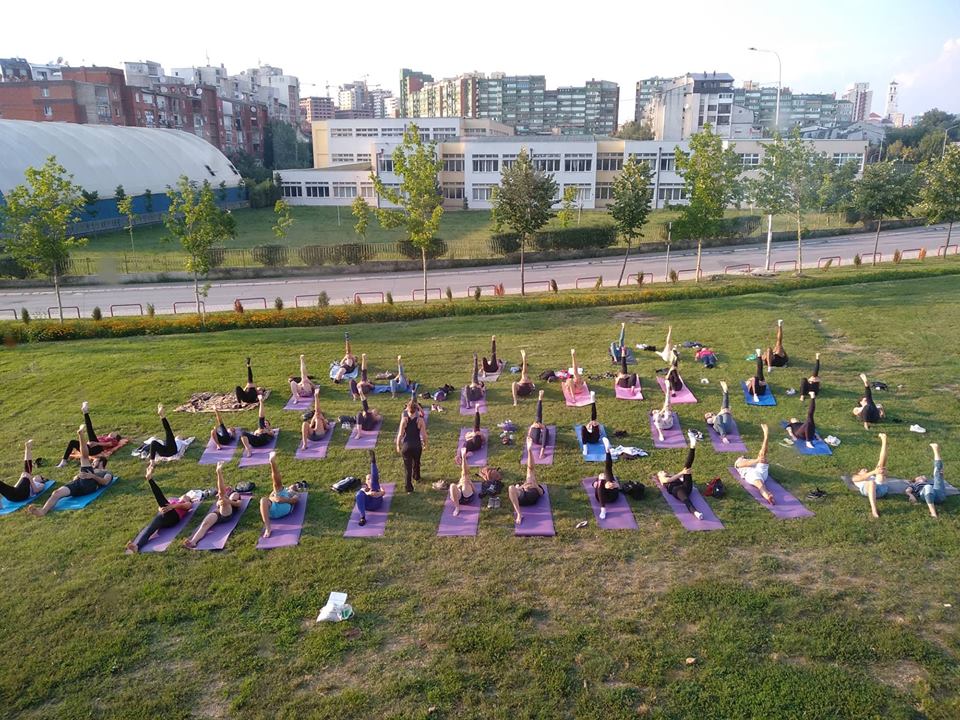
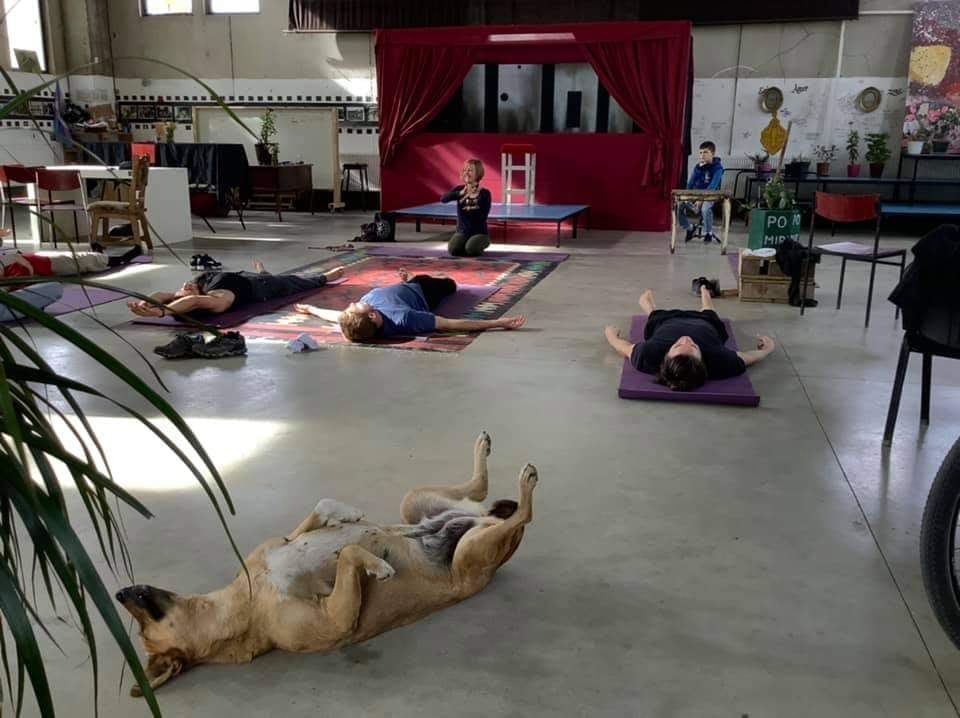
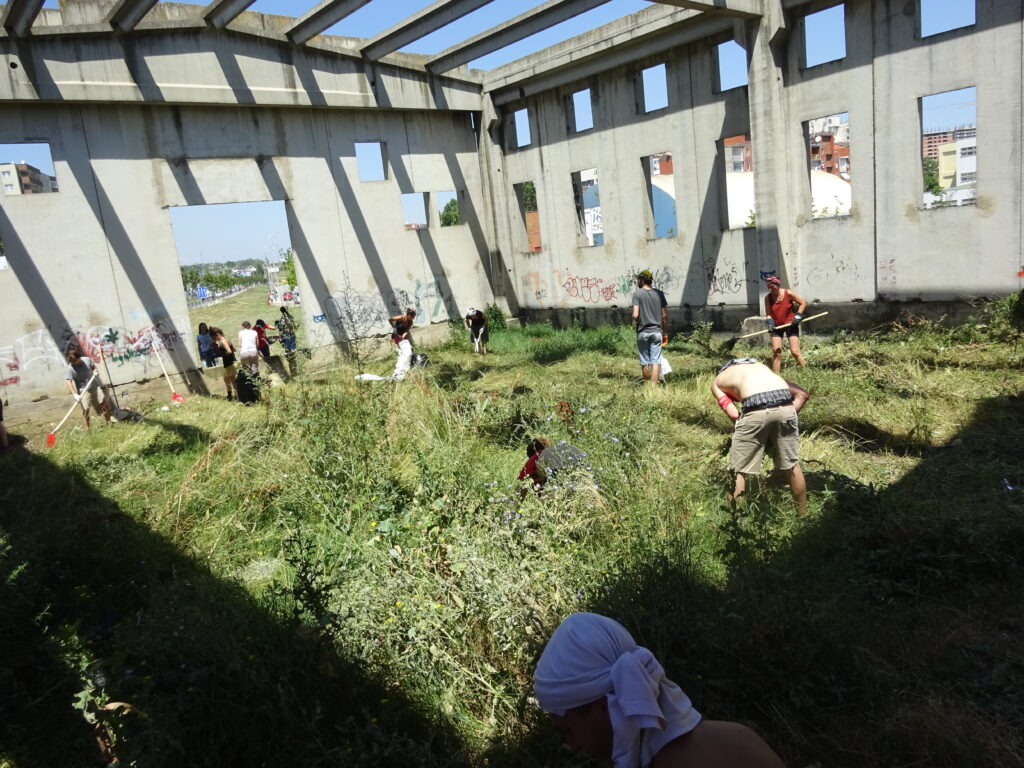
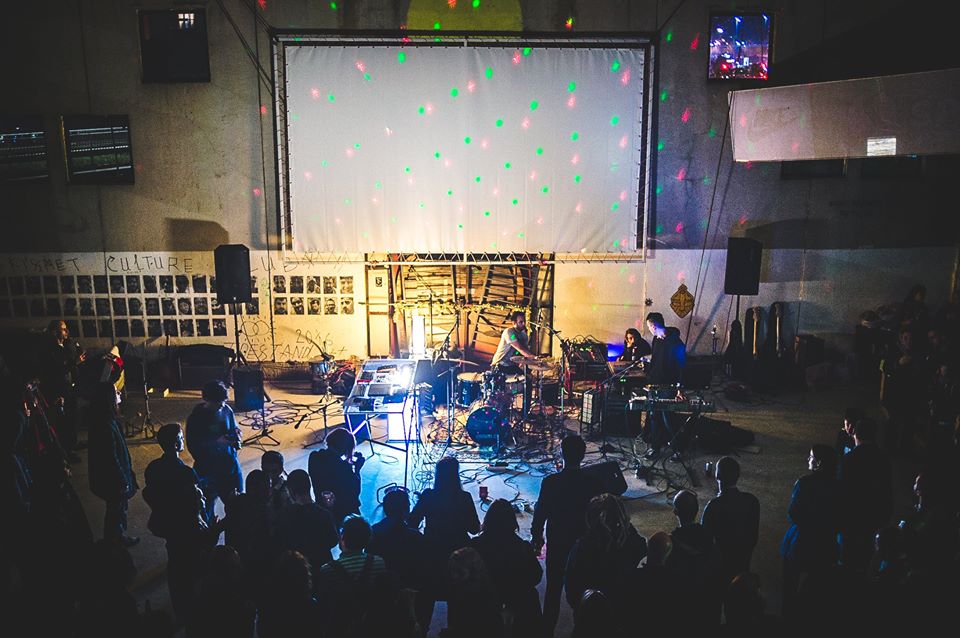
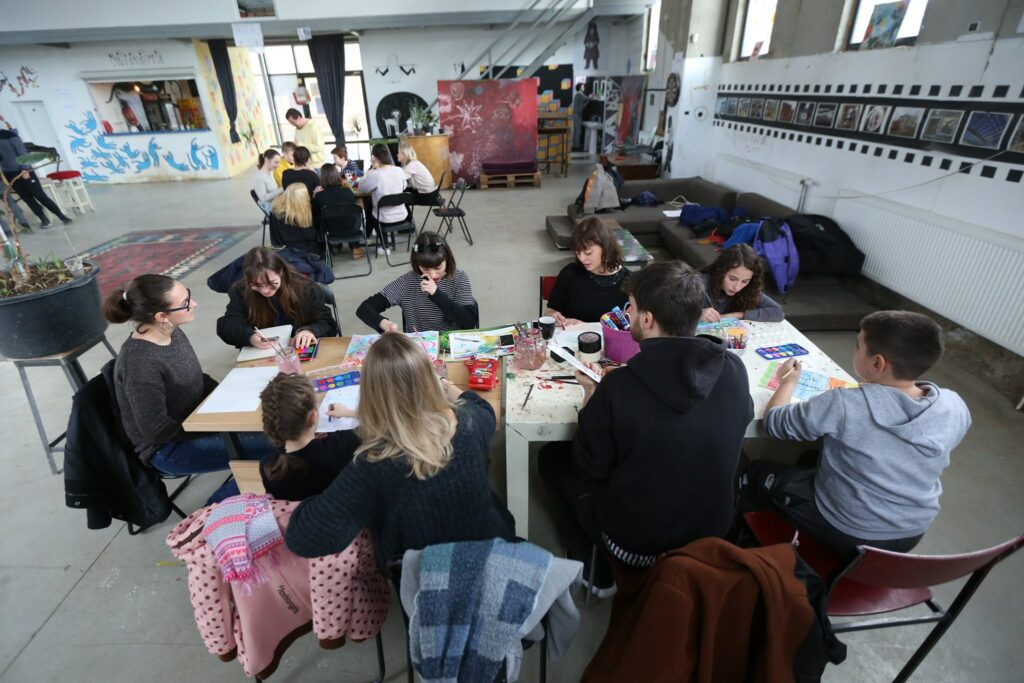
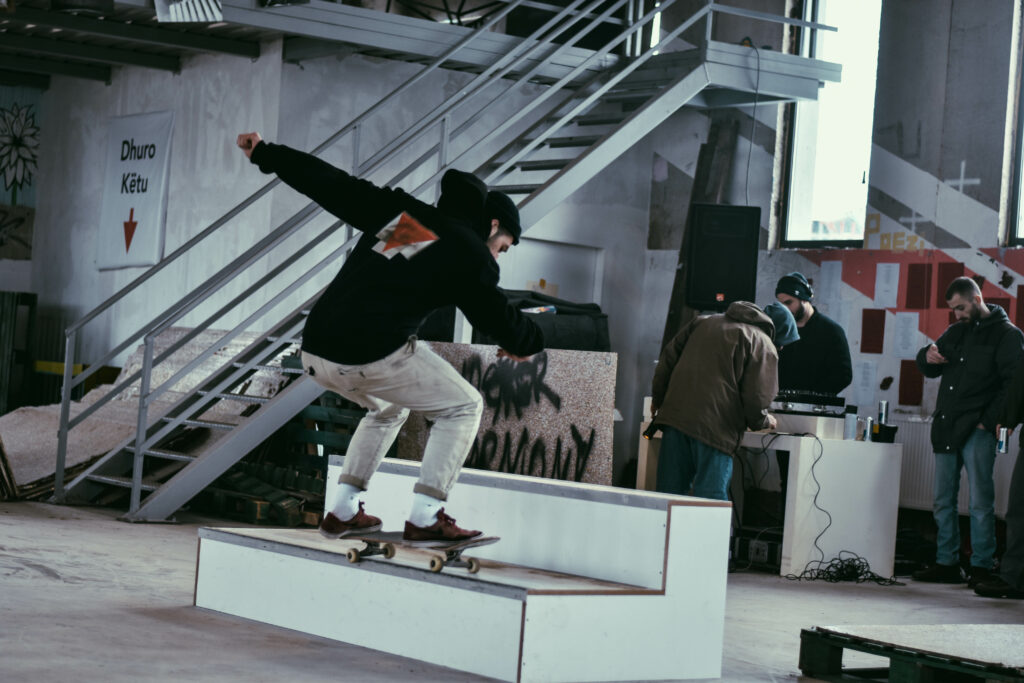
Termokiss was born in 2016 in reaction to the waves of privatisation of public and socially owned spaces and enterprises imposed on Kosovo after the war in 1999. Under the neoliberal policies pursued under the administration of the UN Mission in Kosovo (UNMIK), vast numbers of ex-factories, properties and facilities were handed over to local and international private businesses and corporations in the hope of economic rebirth. Yet the supposed trickle-down effect has repeatedly proven to be a farce. As economist and political scientist Rita Augestad Knudsen’s extensive research on the early stages of the privatisation process shows, out of the hundreds of people she interviewed, not a single main actor was able to offer an alternative solution to accelerated privatisation at that time. But that is changing. Younger generations in Kosovo have been coming up with new initiatives to reclaim public space. Termokiss is one of them.
Pristina’s pioneering community centre was initiated by Toestand, a Belgian non-governmental organisation (NGO) specialised in reappropriating abandoned buildings, and brought to life with the help of a handful of people from Kosovo. Established first as a squat, Termokiss was built in a former facility of the city heating company, Termokos. Its community consisted of people of different backgrounds trying to grapple with the idea of public space. For a short period, the space functioned without permission. Later on, the use of the space was approved by the municipality of Pristina, camouflaged as a ‘special decision’. Despite the precedence set by Termokiss, no legal framework has been established to allow for other such transformations of public space.
In the first six months of its existence, the Termokiss community organised more than 600 activities (music events, training sessions, movie screenings, etc.). Such initiatives reflect the hunger of the younger generations for a new approach, for spaces where community members can express themselves freely and open up new ways of making and exhibiting art, sharing knowledge and education, and creating different levels of consciousness and awareness of their surroundings.
There is no hierarchy; decisions are taken during weekly meetings, held on Wednesdays, on the principle of ‘one member, one vote’. The tradition of Wednesday meetings has continued ever since the very beginning of Termokiss six years ago. The calls to attend these meetings are made verbally as well as through emails and social media groups and platforms.
This structure of decision-making was entirely derived from the ongoing activities happening in the space. As the number of activities organised by the community rose, the space began to gather more and more people around it. The sense of cohesion grew consistently, thus paving the way to flesh out the decision-making process and exposing the need for principles that would serve as pillars of the community and the space.
The community consists of its members and the staff that maintain the space, who, as with any other important decision, are elected in the weekly meetings. The staff members are equal to any other member, but they also carry the responsibilities of coordinating and leading the project from which their income is generated.
The principles of Termokiss were established in a long and open process, in which community members would negotiate for hours on matters of wording, inclusivity, boundaries (no boundaries), activities and functionality. Of all the principles adhered to, the two that thrive the most are those of intergenerational sharing and inclusivity.
The principle of intergenerational sharing calls for leading staff to hand over their position to newer members every two years so they might claim those positions and gain experience in working in such spaces and conditions. Since they are likely to be the members who spend the most time at the space, they have the possibility to navigate towards the ideas which they embrace, bringing about different approaches and priorities for the community.
The principle of inclusivity states that everybody is welcome at Termokiss, but this principle relies also on the agreements reached in the weekly meetings and the individuals who visit the space. There are clear limits to this principle. Inclusion doesn’t extend to any individual who holds supremacist beliefs, is violent in any form, disturbs the activities going on in the space or engages in any other actions that collide with the centre’s principles and regulations.
The grassroots manner in which these principles were established reflects the processes, activities and work taking place in the space and harmonise directly with the framework which evolved within the community.
The importance of this process is supported by the research of Elinor Ostrom, who was awarded the Nobel Prize for Economic Sciences. In her book Governing the Commons: The Evolution of Institutions for Collective Action, she clearly states that communities maintaining and using a space together have a bigger chance of failing if they lack clear principles.
The establishment of the community through activities and exchanges with different non-governmental organisations gave rise to a common struggle for public space. In 2017, the Termokiss community joined forces with different NGOs and individuals from all over Kosovo to launch the initiative ‘Mundësi për Krejt’ (Opportunity for All). The main purpose of this initiative was to initiate a change in the law that governs the allocation for use and exchange of municipal immovable property. The main concerns at that time included the monopolist power wielded by corporations and businesses in laying claim to public spaces owned by the municipality of Pristina, and the lack of a legal framework that would enable NGOs and initiatives to lay claim to such spaces.
Hence, the new alliance of NGOs started a petition to change that law. It was signed by thousands of people who shared the same struggle or who supported the idea that citizens should have the right to lay claim to abandoned spaces.
In April 2019, the new law governing the allocation for use and exchange of municipal immovable property came into effect. Even though not all the recommendations were passed into law, the most important article was, namely the one deeming civil initiatives and NGOs to be legal subjects in possession of the right to claim municipal property. This opened up new dimensions for the use of public spaces and provided a legal basis for future activities in this field. The new law offers transparency when it comes to identifying and claiming spaces for public use. It obliges the municipality to disclose every property it owns and any plans it has affecting the present or future of that property.
The success of this initiative cast a very different light on public spaces and their usage and transformation. It not only made people aware of the existence of such spaces and the possibilities they offer, but also created a new participatory political discourse and sense of empowerment upon which future projects and initiatives could build.
The broad range of community-derived projects frequently manifest themselves in the form of clubs. In fact, from the very beginning the formation of clubs such as the neighbourhood club, the juggling club, music clubs and the video club have played a central role in building a community around Termokiss. Club meetings and activities have brought a huge amount of people to the centre. This growing involvement has created a very healthy social cohesion within the community, which has also shaped the way the space is used.
The community has given rise to numerous other initiatives, some of which have established themselves so well that they have formed their own NGOs. One example is ‘Bukë për Krejt’ (Bread for all). What started off as an idea to find ways of distributing food to people in need has meanwhile evolved into a large-scale initiative. Supported by many activists, the organisation distributes food to needy people on a daily and weekly basis. It is one of the leading initiatives to have grown from the Termokiss community.
Another example is a recently created collective whose name roughly translates as ‘The name comes last’. The collective is currently operating in the city of Fushë Kosova with members who were and still are part of the Termokiss community. Located just ten kilometres away from Pristina, Fushë Kosova is a small town with a diverse profile. It is home to Albanian, Serbian and Roma communities. The main idea is to ‘pass the torch’, as it were, to share the tools developed by Termokiss to reuse and rebuild abandoned spaces in Fushë Kosova. The idea is to create a community and, in so doing, to raise awareness for the potential of the communal – as opposed to business and corporate – usage of abandoned buildings and properties. At the same time, the collective aims to demonstrate that it is not only around big cities that this kind of initiative can work.
Like other ongoing initiatives, these two projects clearly reflect the community’s strong opposition of capitalist values and its powerful commitment to creating alternative methods of distributing knowledge, ideas and goods to all people, regardless of their backgrounds and means.
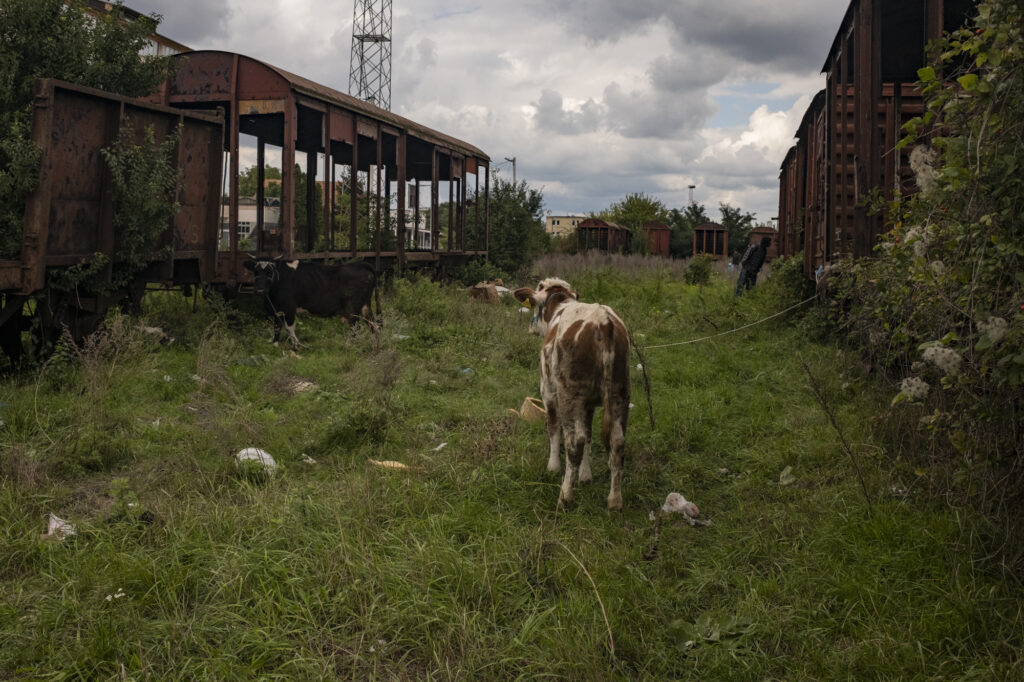
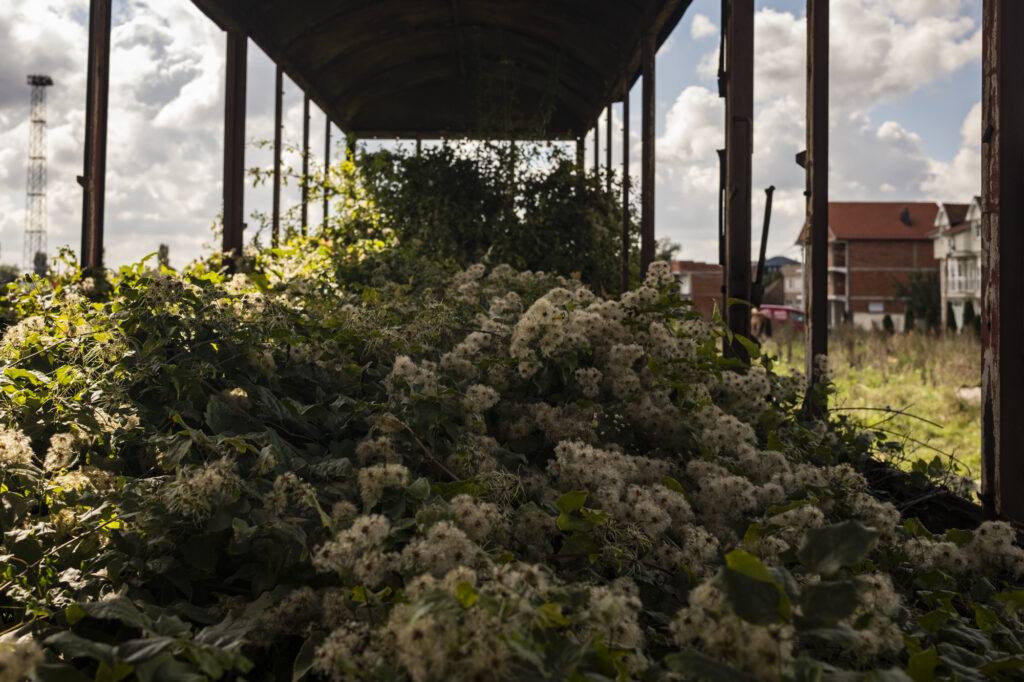
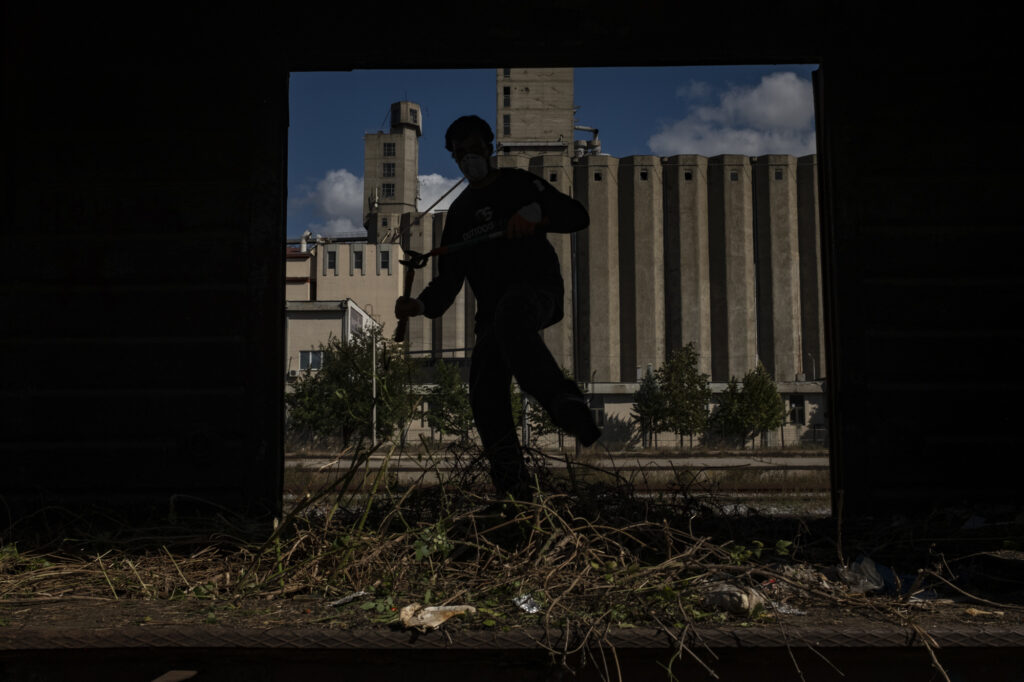
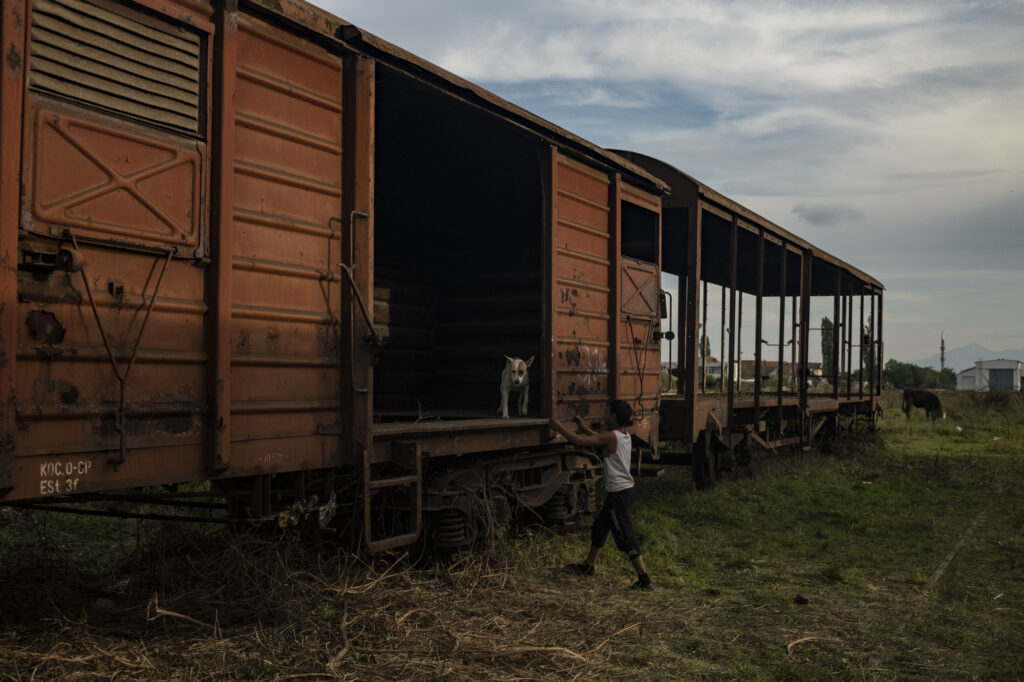
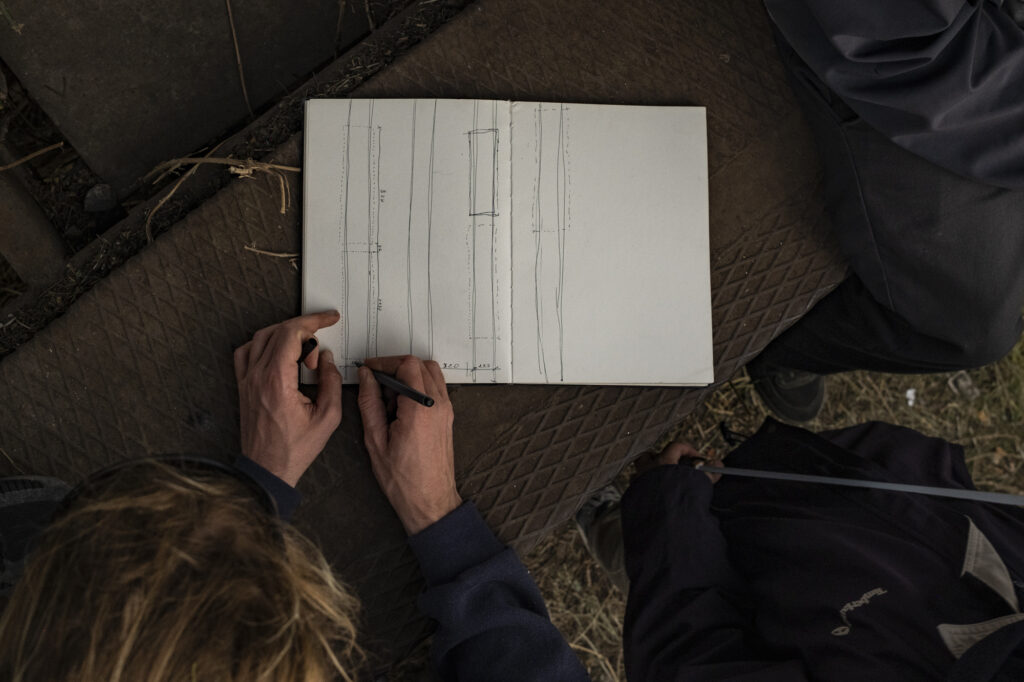
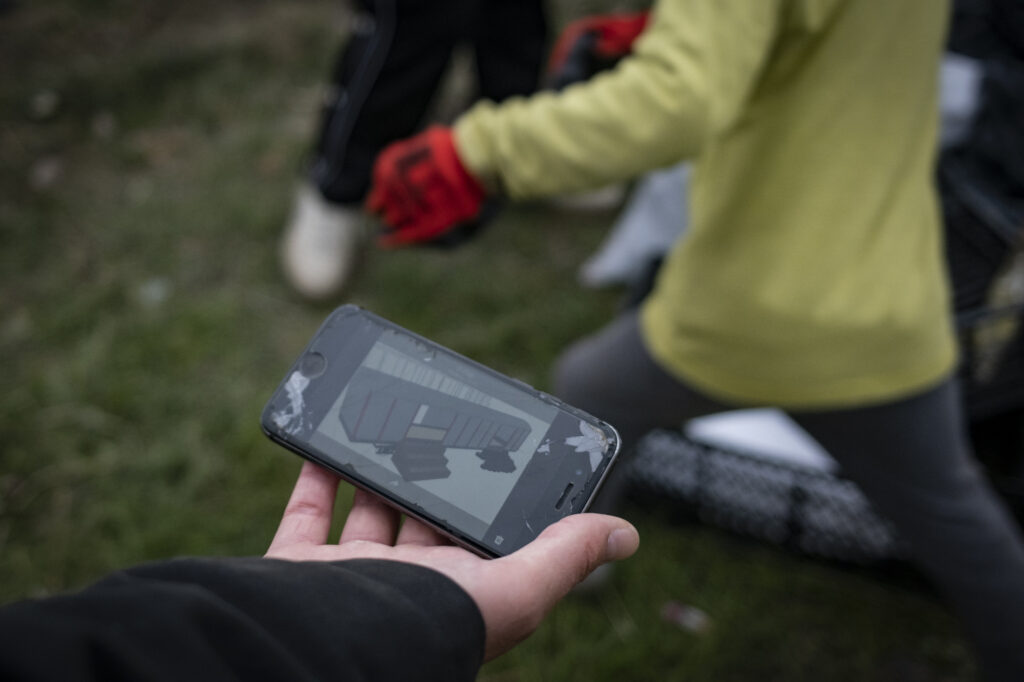
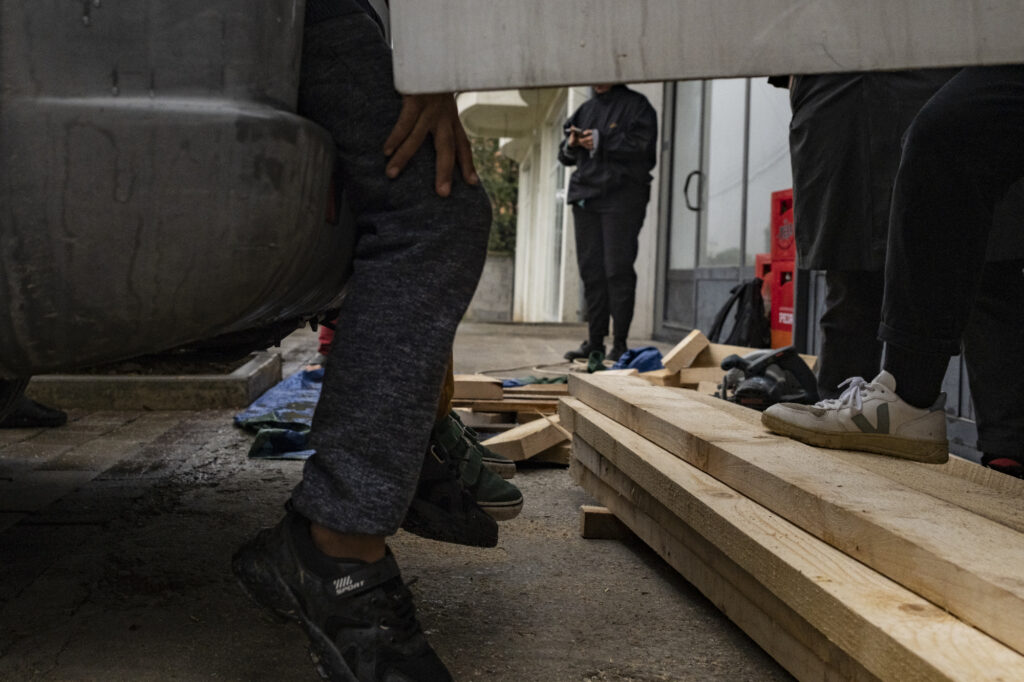
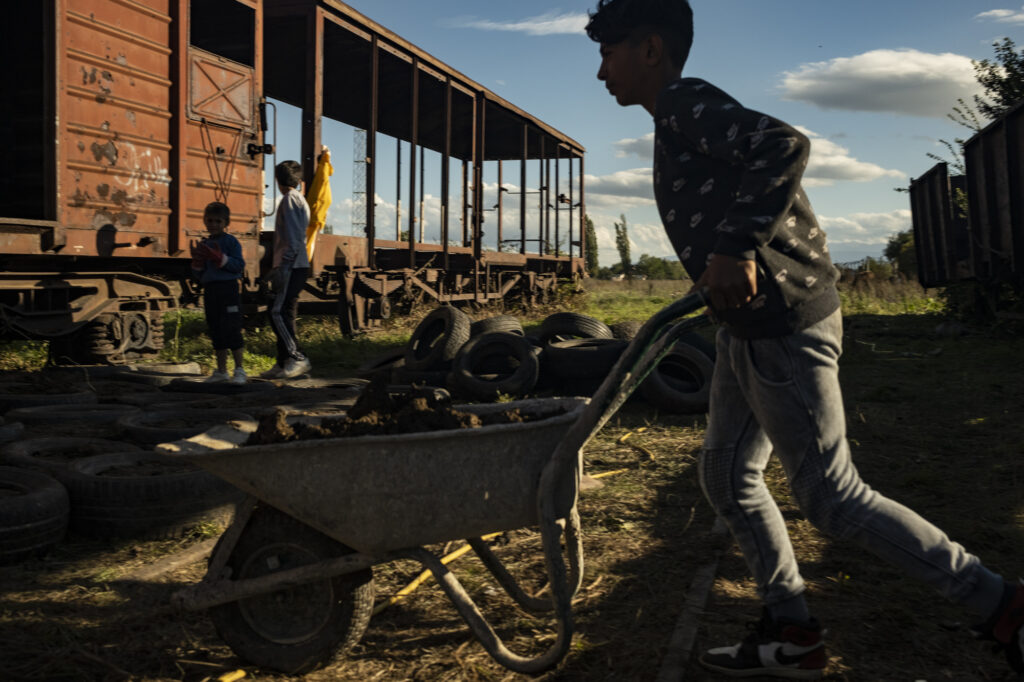
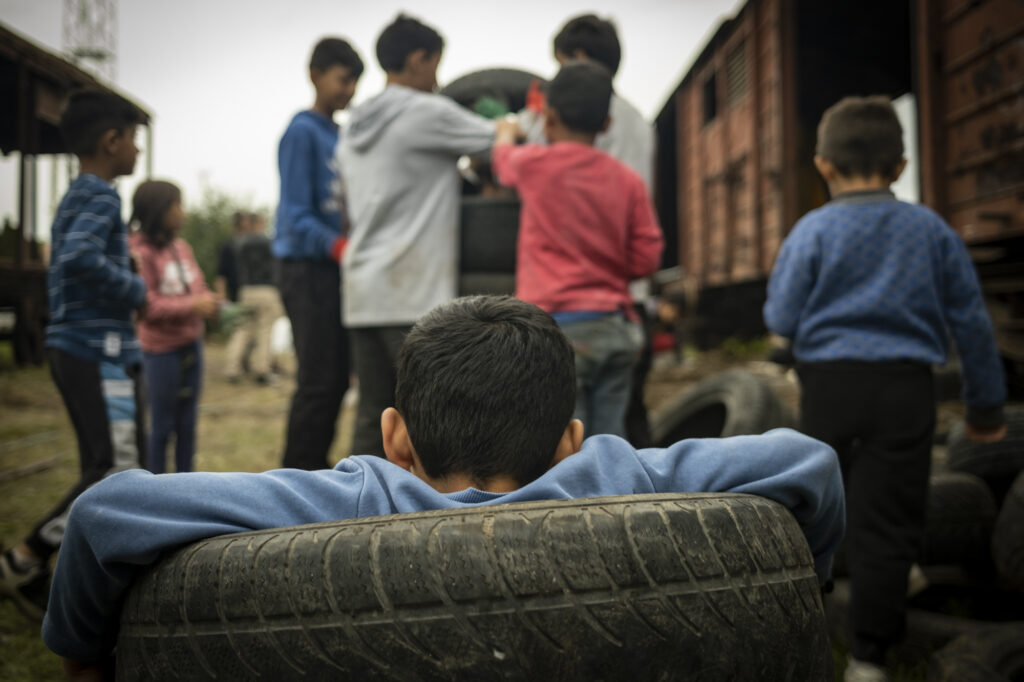
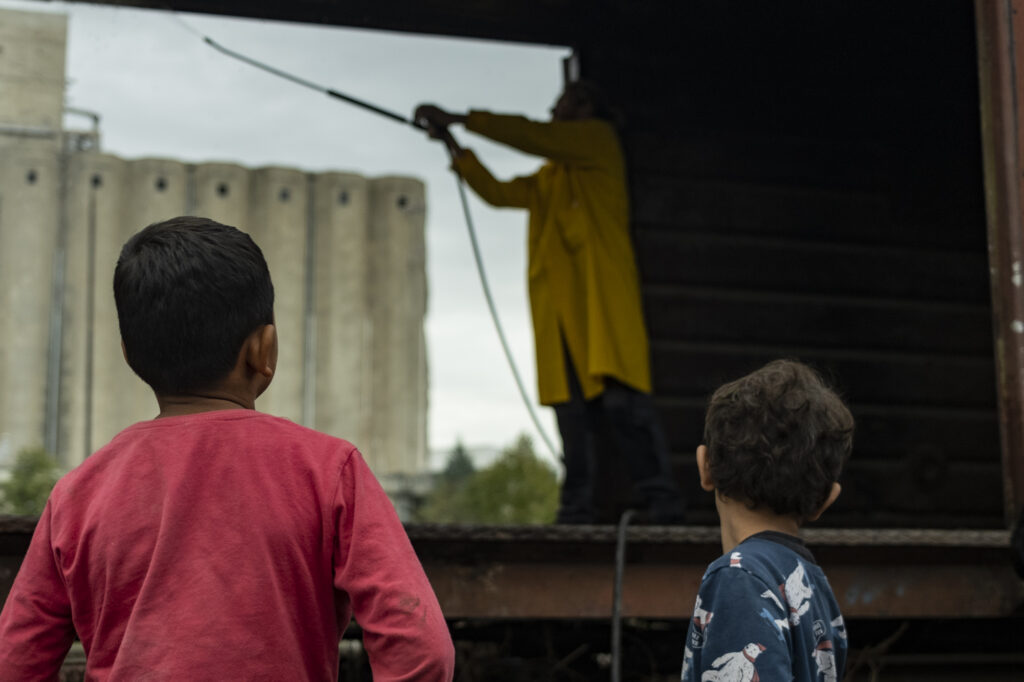
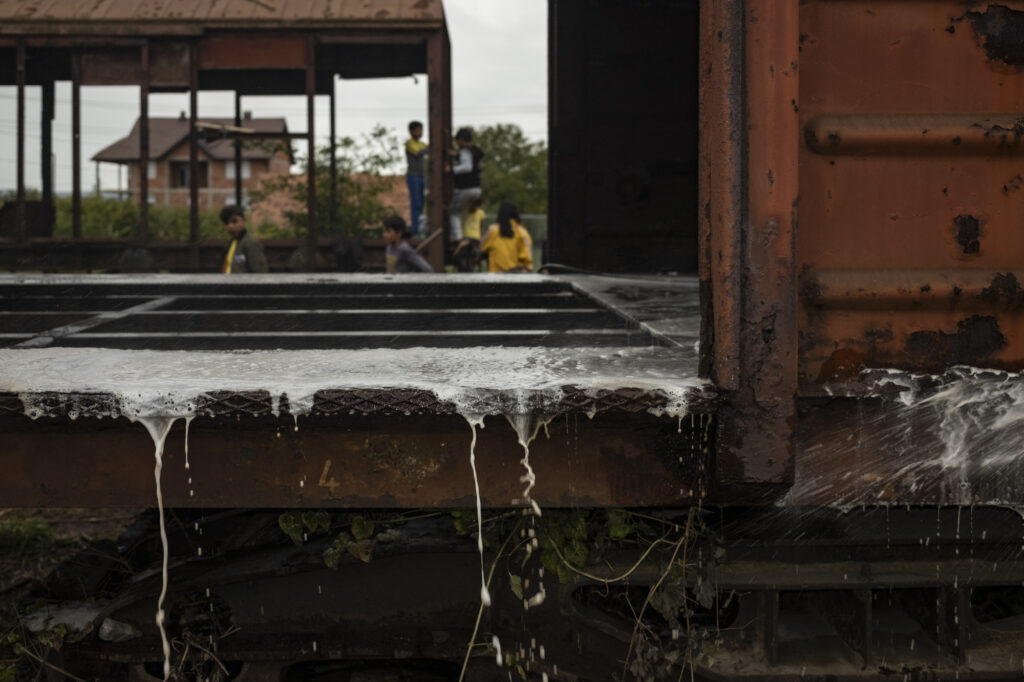
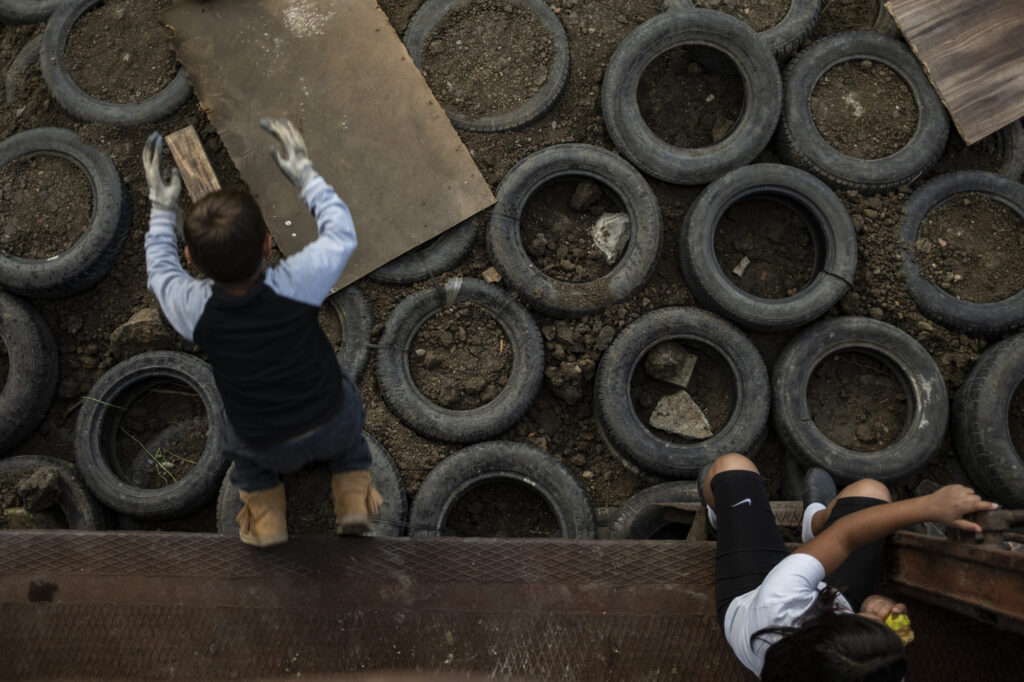
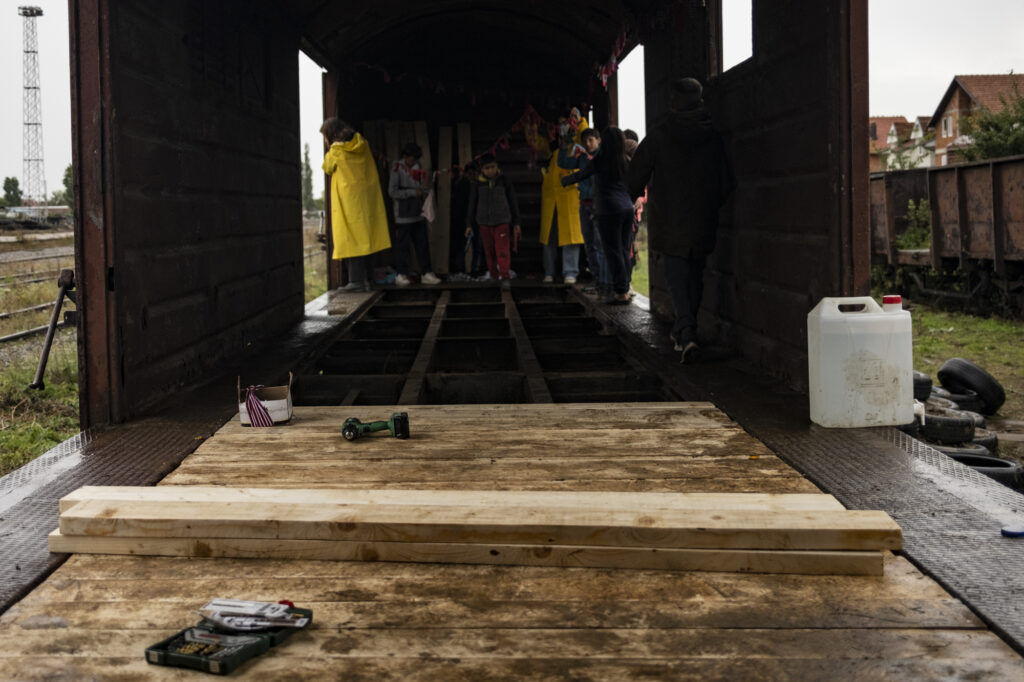
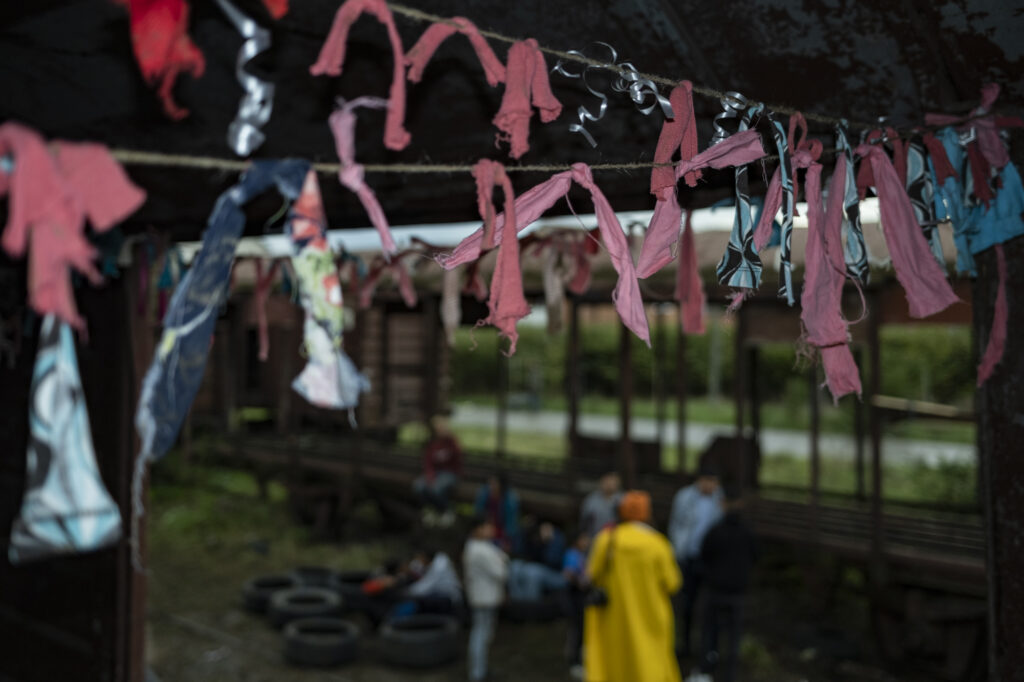
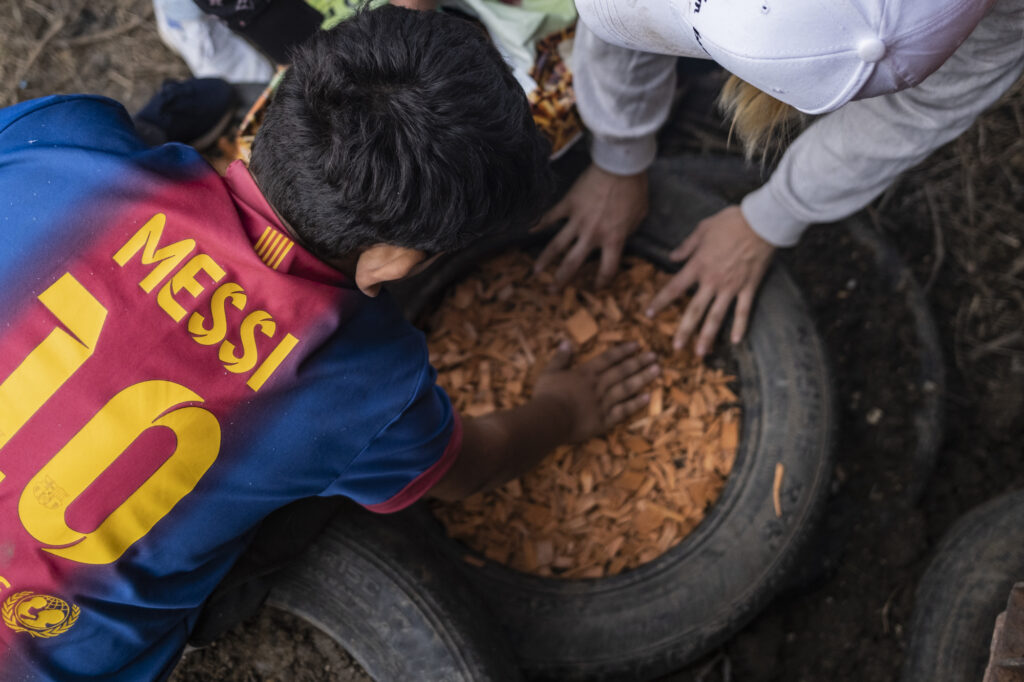
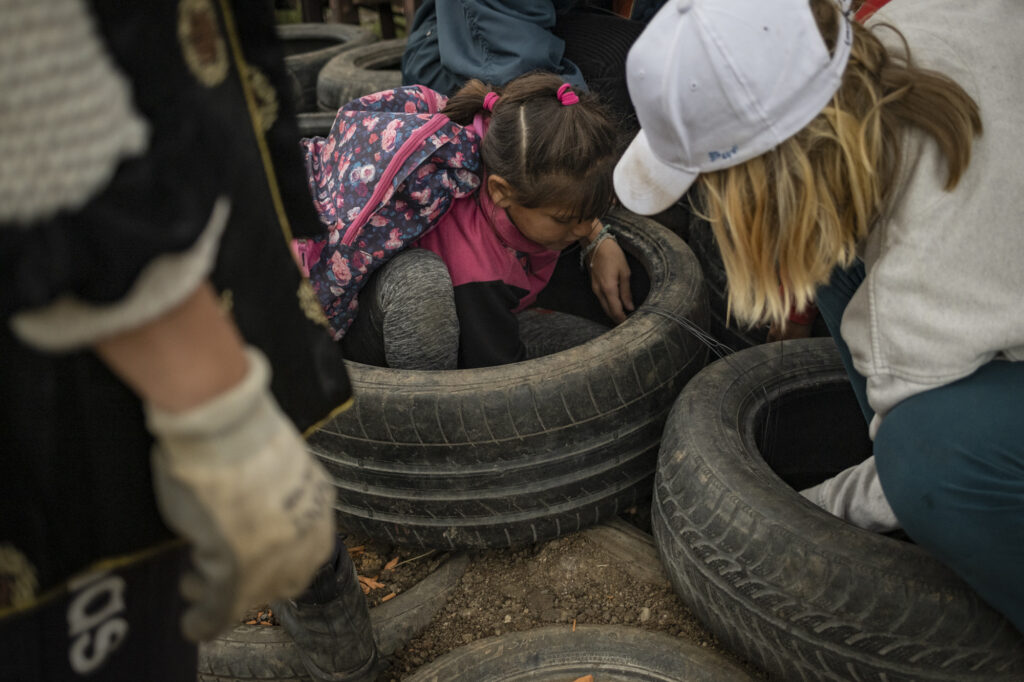
The Termokiss community applies to different funding bodies, both local and international, some of which can be institutional. Project applications are written and submitted in close conversation with the members of the community and depend very much on the necessities at any given time. Funding varies according to the public’s needs. These are discussed within the community project, leading to future plans for investments, infrastructure and tools.
Termokiss is run from a building measuring 300 square metres with a garden around it. The space is thus a very important resource, guaranteeing the community’s ongoing activities. The community tries to make as much use as possible of its size and scope. Renting the space out is another way to generate income. The fee for using the space is not always levied. Indeed, it is often waived for young initiatives, NGOs or local music groups. But institutions, international organisations and well-funded organisations are obliged to pay a fee and thus contribute directly to the funds of the space and the community.
In recent years, the garden has also been transformed into a source of self-sustainability. Operating as an urban garden, its produce is harvested and used by the community. Very often it is also used by the ‘Buke per Krejt’ initiative to help provide food packages to people in need.
Ultimately, all initiatives using public spaces in similar ways share the same struggle of remaining financially independent, in Kosovo as in many other places around the region. There is a shortage of funding sources compatible with the community’s value system. While this makes it harder to keep things running, it also challenges the community to come up with new methods and ideas about how to raise and use funds.
After six years of existence, Termokiss is no longer a novelty, but an integral part of daily life. It has made people believe that sustainable and safe social and community spaces can – and should – continue to exist. Even state institutions have come to recognise the value of this kind of initiative. Many of their representatives have grown to respect the ideas such initiatives represent and explore, and to look to the innovative ways in which they have shown community spaces can be used and can contribute to the social fabric. Besides the successful change to the law, Termokiss and other such initiatives have helped not only to create a platform for reclaiming public spaces, but also to build a bridge between people and institutions so that they might work together to define the future of the spaces at hand.
is a jurist with a bachelor’s degree in Law from the University of Pristina. As a researcher, activist and law practitioner, he was involved in writing and publishing the research project ‘Spaces of Commoning: Urban Commons in the Ex-Yu Region’. Moreover, he has acted as a legal representative of Termokiss at the Ministry of Local Government Administration. He was part of the consultation process that led to changes to the law that regulates public spaces in Kosovo, representing community needs for public spaces in the interests of a fairer, non-commercial and more transparent law. He has worked in the civil division of the Basic Court of Pristina assisting with legal tasks such as decisions and verdicts, administrative processes, and monitoring legal processes. He has recently begun to work in the fields of environmental issues, public space, and mental health.